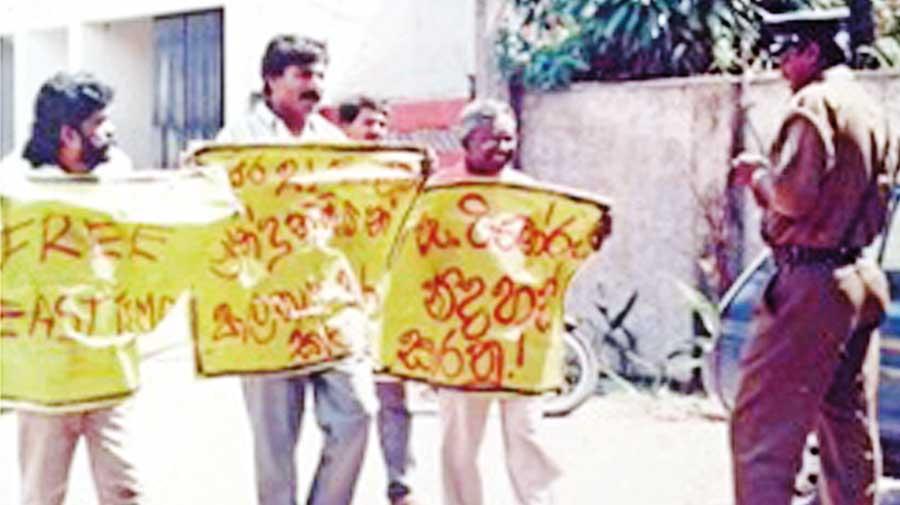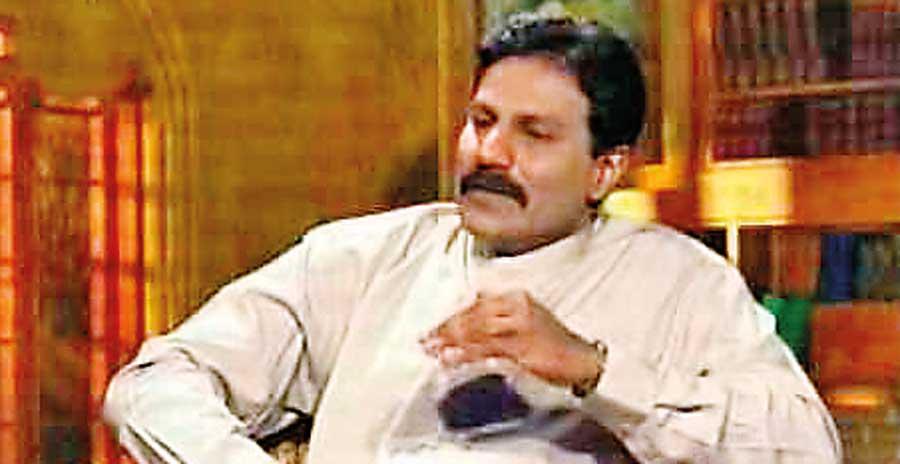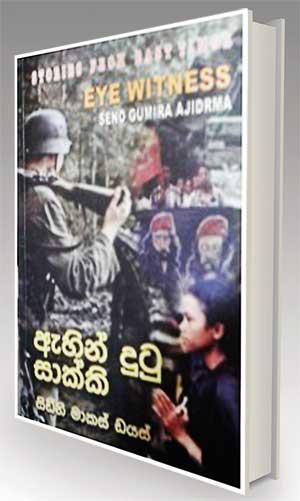15 Mar 2019 - {{hitsCtrl.values.hits}}

"According to Dias, he was detained overnight under intolerable smells and cold conditions"
"He has not been allowed to contact the Sri Lankan Embassy in Thailand"
"Dias translated Seno Ajidarma’s Eyewitness – a book detailing accounts of Indonesian oppression in East Timor"
Sydney Marcus Dias, a veteran writer, teacher and peace activist, was arrested on February 15 by the Thai Immigration citing his involvement in the East Timor Freedom Movement. He has been banned from entering Thailand for 100 years and was deported back to Sri Lanka.
The incident happened when he arrived in Thailand with a valid visa, to travel to the destination. He was accompanied by his wife and two daughters. The planned family vacation as a promise fulfillment to his daughters for entering university was interrupted by the unprecedented incident. 
According to Dias, he was detained overnight under intolerable smells and cold conditions in the detention centre and was separated from his family. Despite the ill-treatment, he was charged 743 Thai Bhat as detention room charges. He has not been allowed to contact the Sri Lankan Embassy in Thailand or a senior Thai immigration officer. Thai Immigration has forced him to sign a document in Thai without explaining its content.
Explaining his involvement in the East Timor Movement, he clarified that he has never taken part in any activity against the Government of Thailand. He can not fathom why the Thai embassy in Sri Lanka did not reject his visa application, which if they did, would have allowed him to avoid this detestable incident.
“If I was in a list among persons excluded from entering Thailand, they (Thai Embassy) could have denied me visa. I would have simply arranged to go elsewhere for the vacation with my family,” he said.
East Timor was occupied by Indonesia between 1974 - 99. During the period East Timor was considered as a province of Indonesia. In 1994, the Asia-Pacific Conference on East Timor (APCET) in Manila, Philippines to support the East Timor freedom campaign was banned by the Philippines Government due to pressure from the Indonesian Government during the time. Dias along with two other Sri Lankan activists were deported from the airport although the Philippines court system allowed the conference to proceed.
Dias translated Seno Ajidarma’s Eyewitness – a book detailing accounts of Indonesian oppression in East Timor in fictional form, under the title Asin Dutu Sakshi. It is unclear whether his writing further credited to his deportation from Thailand.

 An independence referendum was held in East Timor in 1999. East Timorese were asked if they accept greater autonomy within Indonesia or complete autonomy leading to separation from Indonesia. The referendum ended Indonesia’s 24-year occupation. The United Nations (UN) played a vital role in East Timor by organising the referendum.
An independence referendum was held in East Timor in 1999. East Timorese were asked if they accept greater autonomy within Indonesia or complete autonomy leading to separation from Indonesia. The referendum ended Indonesia’s 24-year occupation. The United Nations (UN) played a vital role in East Timor by organising the referendum.
Compared to the muddled outcome of many other UN interventions in history, East Timor is a relative success story. Since 2002 East Timor has been recognised as an independent state by the UN.
During the deportation process in 1994, Dias had been sent to Bangkok as they were travelling back to Colombo through Thai Airways.
APCET campaign leader in Sri Lanka, Freddie Gamage, confirmed that he had travelled to Philippines and Indonesia on several occasions preceding the incident in 1994.
Dias has made a complaint regarding his rights violation to the President, Ministry of Foreign Affairs, Thai Embassy in Sri Lanka, UN Human Rights Commission (UNHRC) and Human Rights Commission in Sri Lanka (HRCSL). Responding to Dias, UNHRC and HRCSL have informed that the matter is outside their jurisdiction.
Several activist organisations are following up on the incident to support Dias clear his name from the misunderstandings and have appealed to recover the financial loss he incurred due to the misapprehension of his peace activism over 24 years ago.
Responding to Dias’s email, the Thai Embassy in Colombo has informed immigration officers, that there can be some cases where permission might not be given to a foreigner holding a valid visa to enter Thailand, if they find reasons to believe that the person falls into the category of aliens prohibited from entering Thailand under the Immigration Act B.E 2522 (1979). It is learned that under the same law, the expense for the detention can be charged to the alien’s account.
In the same email, the Embassy refused to comment on the treatment to him and his family at the airport on the grounds that their staff was not involved in the incident.
Thai Embassy did not respond to Daily Mirror request for more information.Despite numerous attempts to reach the Ministry of Foreign Affairs officials were not available for comment regarding the incident.
30 Nov 2024 59 minute ago
29 Nov 2024 29 Nov 2024
29 Nov 2024 29 Nov 2024
29 Nov 2024 29 Nov 2024
29 Nov 2024 29 Nov 2024